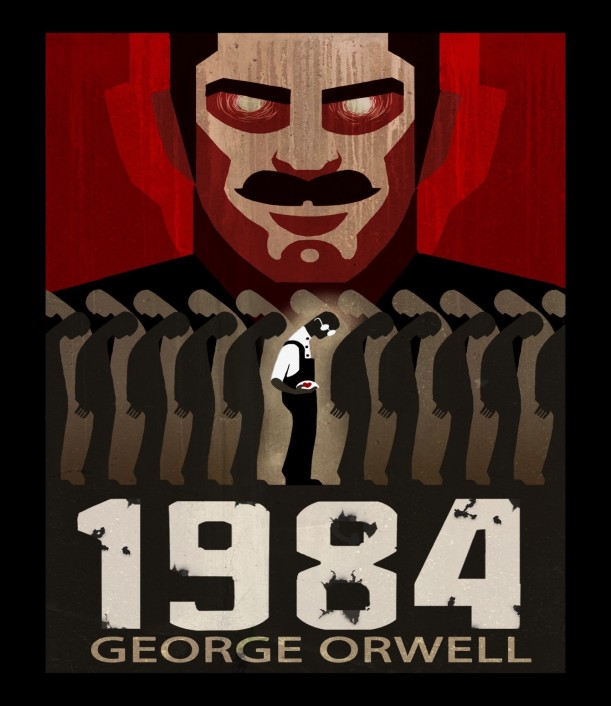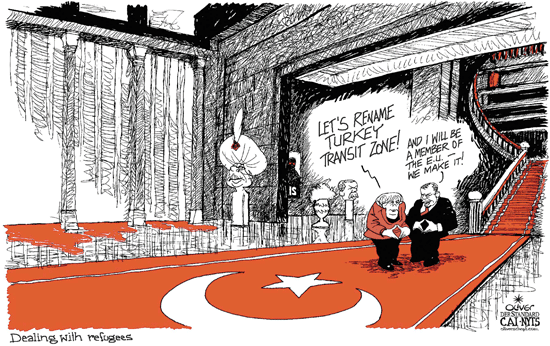Margie Beltran
The mystique of a dystopian society has maintained a consistent intrigue across the history of mankind. The imagination of man runs wild when he thinks about the “what ifs” and how they would affect the way we live.
The Time Machine; 1984; Brave New World; Planet of the Apes; The Giver; The Hunger Games; The Divergent Series; and, of course, that paramount episode of The Twilight Zone when all that poor man wanted to do was read his books – he becomes the last man on Earth and can finally sit on the remains of the post-apocalyptic library, reading for the rest of his days. And then, he accidentally steps on his glasses and yells, “That’s not fair, there was time now!”
We have seen the same theme time and again: mankind begins to self-destruct and in the bout of chaos and anarchy, a powerful leader/governing body rises from the ruins and reshapes society into a peaceful and balanced ecosystem. Beautiful, no? So, what’s the catch? To have order and peace, one must forego the right to freedom and privacy.
My friends, hold on to your Mockingjay pins, for the dawning of the dystopian society may be upon us.
On November 29, 2016, The Investigatory Powers Act (IPA) was passed in the UK set to be enforced in January 2017.[i] Not the first of its kind among the EU Member States, the IPA was satirically dubbed the “Snooper’s Charter” by those who opposed it. The Act grants law enforcement easier access to the private communications of UK citizens.[ii] Some of the major provisions[iii] include, but are not limited to:
- Power to issue warrants for intrusive surveillance granted to ministers.
- Easier access for the government to retain browser history from popular websites.
- Ability to collect bulk communications data and to hack suspect’s electronic devices.
Over the past few years, terrorist attacks have become a consistent and troubling threat throughout Europe.[iv] Although aware of the threat posed by terrorism, many within the EU are concerned since allowing the government into their phones and personal computers was not quite what many had in mind, as far protective measures go.[v] Amnesty International (AI) criticized the UK, a nation considered to be a fierce protector of human rights, for setting such an example to other EU-Member States.[vi] According to AI, the Snooper’s Charter is “a modern twist of the Orwellian ‘thought crime,’ [in which] people can now be prosecuted for actions that have extremely tenuous links to actual criminal behavior.”[vii]
I sympathize and empathize with this issue under two lenses: the first, my rose-colored-goggles human rights activist perspective, in which I feel the rights of the people should be staunchly protected and the foremost concern of the governing body to any nation because it is what is just and humane; and the second, as a young American adult who remembers being a nine-year old, enveloped with gut-wrenching fear for reasons I could not even comprehend, living just minutes from Washington D.C. on September 11, 2001, and seeing the glazed-over eyes and clenched jaws of my peers whose parents worked downtown trying to hold back their tears in school for weeks following the attack.
The day the government is definitively tracking every communication we send and receive will be a disturbing one for sure. Even if they have nothing to hide, many people are bothered knowing a third party is always reading, analyzing, and judging everything they type or say.
While freedom of speech is of the utmost importance, I continually find myself reverting to the lenses of nine-year old me. If the ones I love are at risk of being hurt, I would give up my right to privacy within the confines of this act. Maybe not permanently – and that is a risk that holds high with a law challenging a fundamental freedom – but at least until this state of emergency in Europe eases.

Photo Credit: http://www.gannett-cdn.com/media/USATODAY/USATODAY/2013/10/22/1382487602000-03-Capitol-Dome.jpg
Think about The Uniting and Strengthening America by Providing Appropriate Tools Required to Intercept and Obstruct Terrorism Act (far more commonly known as The USA PATRIOT Act) enacted during the George W. Bush Administration in 2001 following the 9/11 attacks which enabled law enforcement to detect and prevent terrorism attacks by expanding the scope of their investigatory practices.[viii] The USA PATRIOT Act passed in Congress across the bipartisan margins.[ix] In the Senate, the act passed with nearly a unanimous at a 98-1 vote, while the House voted in favor with a 357-66 vote.[x]
Regarding terrorist attacks, the US has not faced an attack of the magnitude of 9/11 since the act was decreed. While the USA PATRIOT Act has its flaws, as most laws do, the original purpose for introducing the bill has generally been satisfied. The UK appears as if the IPA has received the same treatment by Parliament.[xi] According to London-based journalist, Ewen MacAskill, the bill passed “with barely a whimper.”[xii] Further, he said the marginal resistance to the bill did not come from outside of the parliament’s four walls, indicating the people of the UK and Parliament are both in support of the IPA.[xiii] If the citizens of the UK are not complaining about the new law and choosing to exercise their right of privacy by foregoing their right of privacy, then so be it. They have the right to invite Big Brother into their lives.
“To the future or to the past, to a time when thought is free, when men are different from one another and do not live alone – to a time when truth exists and what is done cannot be undone…from the age of Big Brother – greetings!” – George Orwell, 1984[xiv]
Margery Beltran is a third year law student at the University of Baltimore School of Law (Candidate for J.D., May 2017). She holds a Bachelor of Science in Family Science with a minor in Psychology from Towson University. Her interests include mental health and disability law and international alternative dispute resolution. Margie currently serves as the Volume V Comments Editor for the University of Baltimore’s Journal of International Law. She participated in the 2016 Summer Abroad Program at the University of Aberdeen School of Law in Aberdeen, Scotland. She is currently an intern in Washington D.C. for the U.S. Department of Health and Human Services, Alternative Dispute Resolution Division.
[i] http://www.natlawreview.com/article/uk-investigatory-powers-act-2016-how-to-prepare-digital-age
[ii] Id.
[iii] Id.
[iv] https://www.theguardian.com/uk-news/2017/jan/17/uk-counter-terror-laws-most-orwellian-in-europe-says-amnesty
[v] Id.
[vi] https://www.amnesty.org/en/latest/news/2017/01/eu-orwellian-counter-terrorism-laws-stripping-rights-under-guise-of-defending-them/
[vii] Id.
[viii] https://www.justice.gov/archive/ll/highlights.htm
[ix] Id.
[x] Id.
[xi] https://www.theguardian.com/world/2016/nov/19/extreme-surveillance-becomes-uk-law-with-barely-a-whimper
[xii] Id.
[xiii] Id.
[xiv] 1984 by George Orwell


















